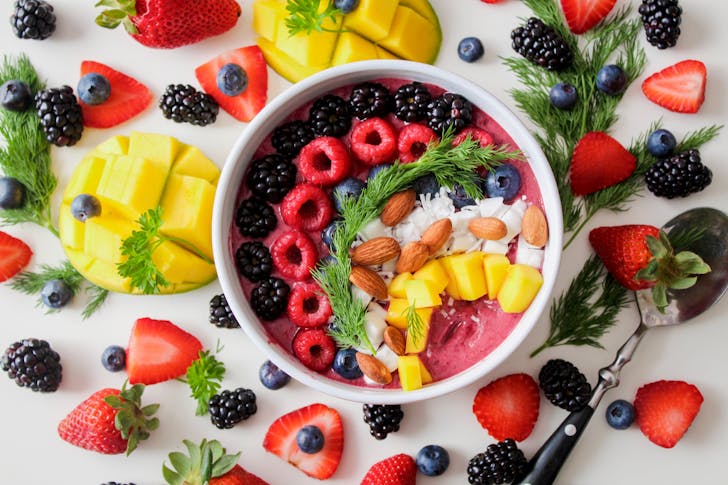Although “superfood” lacks a strict scientific definition, it generally refers to nutrient-dense whole foods offering significant health benefits. Think of them as tiny packages bursting with vitamins, minerals, and antioxidants.
According to Philadelphia-based dietitian Amy Margulies, the term is often used by food companies to promote healthful products. But its core meaning still holds weight. Superfoods are associated with reduced inflammation, better immune support, and lower risks of chronic diseases like heart disease and Alzheimer’s.
The superfood concept sticks around for a good reason. It delivers results. With their ability to nourish the body from the inside out, superfoods are more than a fleeting health trend.
Here are some favorite superfoods experts recommend adding to your plate:
Berries
Superfood status fits berries like a glove. Blueberries, raspberries, and strawberries are nutritional goldmines. Packed with antioxidants, they help combat harmful free radicals in your body, which can damage cells and accelerate aging. They are also rich in fiber, keeping your digestion smooth and supporting heart health.

Janet / Pexels / Dieticians suggest that berries are superfoods that are packed with nutritional benefits.
The beauty of berries lies in their versatility. Toss them into smoothies, sprinkle them over yogurt, or snack on them as is. They are a sweet treat that won’t spike your blood sugar, making them perfect for everyone, from kids to adults looking to maintain steady energy levels throughout the day.
Leafy Greens
Spinach, kale, and Swiss chard may not wear capes. But they are superheroes of nutrition. These leafy greens are overflowing with vitamins A, C, and K, as well as minerals like iron and calcium. They are particularly good at reducing inflammation, supporting bone health, and improving eye function.
However, eating leafy greens doesn’t have to mean boring salads. Sauté them with garlic, toss them into a hearty soup, or blend them into a green smoothie. Their mild flavors make them easy to incorporate into countless dishes. This adds a burst of nutrition without overwhelming your taste buds.
Seeds and Nuts
Seeds and nuts might be small, but they are loaded with big health benefits. Chia seeds, flaxseeds, and walnuts are rich in omega-3 fatty acids, known for supporting brain health and reducing inflammation. Almonds, on the other hand, provide a hefty dose of vitamin E, which keeps your skin glowing and protects your cells from damage.
These crunchy delights are incredibly versatile. Sprinkle chia seeds into oatmeal, grab a handful of almonds for an on-the-go snack, or add flaxseeds to baked goods. Their satisfying crunch and nutty flavors make them an easy and delicious way to boost your nutrient intake.
Cruciferous Vegetables
Broccoli, cauliflower, and Brussels sprouts belong to the cruciferous family and are often called cancer-fighting champions. They contain sulforaphane, a compound that has shown potential in reducing the risk of certain cancers. These veggies are also high in fiber, promoting a healthy gut and steady blood sugar levels.

Minan / Pexels / Cruciferous vegetables are easy to prepare. Roast broccoli with a drizzle of olive oil, steam cauliflower for a creamy mash, or pan-fry Brussels sprouts with a touch of balsamic vinegar.
These methods bring out their natural sweetness while preserving their nutritional value.
Salmon
Finally, salmon is a standout among superfoods, thanks to its rich concentration of omega-3 fatty acids. These healthy fats are vital for brain function, heart health, and reducing inflammation. Salmon is also an excellent source of high-quality protein and vitamin D, which supports bone health and strengthens your immune system.
Whether baked, grilled, or smoked, salmon is a versatile fish that pairs beautifully with various flavors. Serve it with a side of roasted vegetables or flake it into salads for a meal that is as nutritious as it is satisfying.





